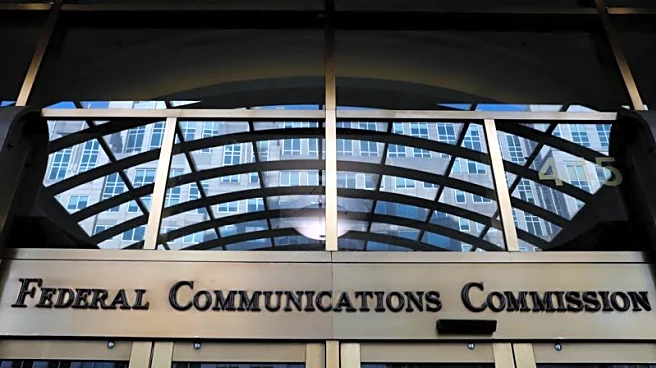What's Happening?
Vaseline has launched the Vaseline Healing Project in Los Angeles, aiming to provide skin health access to communities affected by natural disasters and systemic health barriers. Through a partnership with Direct Relief, Vaseline funds mobile skin-health
clinics that offer free dermatological care and essential products to underserved populations. These mobile units have previously provided relief during California wildfires, delivering not just lotions but dignity and care. The initiative was highlighted at a dinner event in Los Angeles, where Vaseline representatives, health advocates, and dermatology experts discussed the project's impact and future plans.
Why It's Important?
The Vaseline Healing Project addresses significant gaps in healthcare access, particularly for uninsured and unhoused individuals. By providing mobile clinics, Vaseline ensures that skin care, an essential aspect of overall health, is accessible to those who might otherwise be neglected by traditional healthcare systems. This initiative is crucial in areas recovering from natural disasters, where long-term recovery includes addressing skin trauma. The project exemplifies a brand's commitment to community care, moving beyond performative gestures to deliver tangible health benefits.
What's Next?
Vaseline and Direct Relief have committed $100,000 to expand the mobile medical units in Los Angeles and New Orleans, aiming to reach more communities in need. The project will continue to focus on providing dermatological care and essential health services directly to those facing barriers to care. As the initiative grows, it may inspire other brands to adopt similar models of community engagement and healthcare access.
Beyond the Headlines
The Vaseline Healing Project highlights the intersection of beauty, wellness, and advocacy, demonstrating how brands can play a pivotal role in addressing healthcare disparities. By focusing on skin health, Vaseline is not only enhancing individual well-being but also contributing to broader societal health outcomes. This approach challenges the notion that healthcare access should be limited by socioeconomic status or geographic location.
















